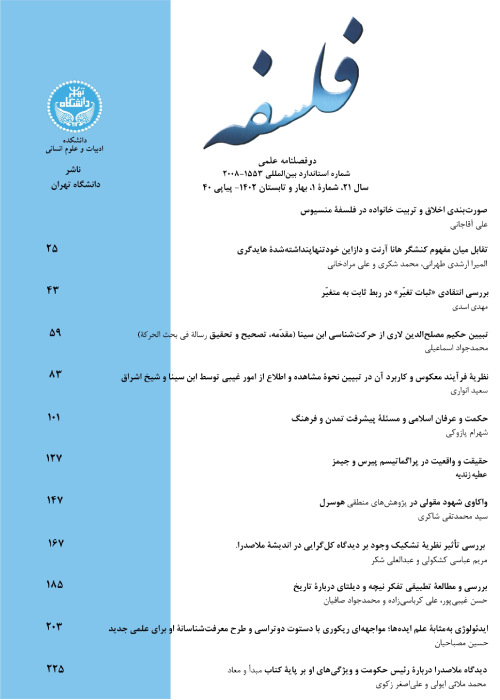Critical Study of Western Natural Law Theories in the Last Stage of Its Revival in Postmodern Period
The third and the last stage of the revival of western natural law thinking in postmodern period started from the last third decade of the 20th century by philosophers' and lawyers' attention to human rights. The last western natural law theories have been explained and assessed during two chapters in this article. The first chapter has analyzed non-Thomist thought of natural law in that period. In this direction, Fuller offered the theory of "internal morality of law". There are at least three deficiencies of his theory. The first is that his definition of natural law is eighter a circular one, or couses positive law to be the criterion of identifying natural law, whereas natural lawyers put natural law as the criterion of positive one. The second deficiency is that the theory is just an innovation of words. The third and the last deficiency of Fuler's natural law theory is that the theory does not insist on positive rules to be moral. Dworkin called his theory of law "Constructive Interpretation". According to the theory, law is the best interpretation, which can be understood from interrelated legal data, like the acts of legislator, court jugments, legal basic texts and… . "Integrity" is an important keyword in his theory. He emphasized that legal claimes are interpretational jugments. They interpret a present legal act as a plain political affair. That is why Dworkin believed that history has an important role in his theory, unlike positive approaches to law. Infact, he was a proponent of interpretive theories of law and he always criticized semantic theories. In addition to the implication of his speech, which is the acceptance of relativism in the world of law and ethics, since Dworkin identified (moral) positive law as a perfect criterion of integral actions, his theory about those human affairs, which have no enacted law, was wrong. The second chapter has assessed Finnis's theory as the newest neo-Thomist conception of natural law. Natural law in his view, is the intellectual judgment to do good actions. According to Finnis, a wise decision is one that is accomplished for the sake of a basic good. In his final view, basic goods are seven: bodily life, knowledge, skilful performance in work and play, friendship, marriage, practical reasonableness and harmony with the widest reaches and ultimate source of reality including meaning and value. He attributed to basic goods five characteristics as follows: self-evidence, being intrinsic, having no relation with each other, being equal with each other and having no inference from the fact. Finnis's theory has variant deficiencies, including that none of these features is an attribute of basic goods. Research method in this article is a synthetic one, which is traditional – intellectual – critical.
- حق عضویت دریافتی صرف حمایت از نشریات عضو و نگهداری، تکمیل و توسعه مگیران میشود.
- پرداخت حق اشتراک و دانلود مقالات اجازه بازنشر آن در سایر رسانههای چاپی و دیجیتال را به کاربر نمیدهد.



